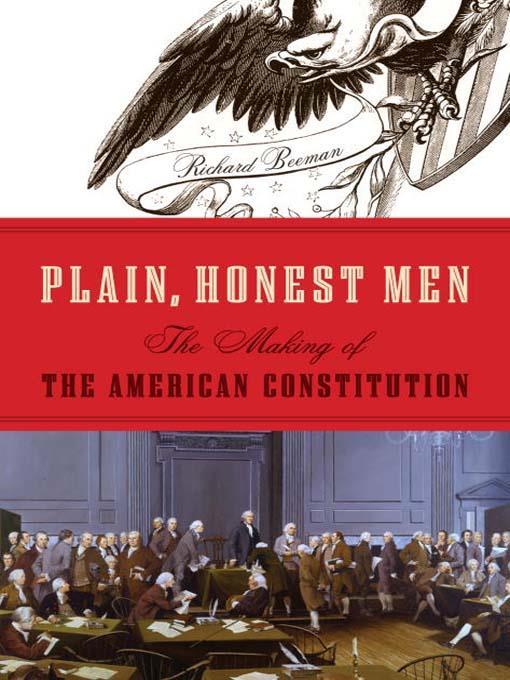
Plain, Honest Men
The Making of the American Constitution
کتاب های مرتبط
- اطلاعات
- نقد و بررسی
- دیدگاه کاربران
نقد و بررسی

Starred review from December 22, 2008
A day-by-day account of the Constitutional Convention of 1787 in Philadelphia can't yield up much drama or fireworks, or even much sparkling talk, at least as recorded by a few participants, especially James Madison. But in this masterful account, Beeman (Patrick Henry
), a noted historian of the late 18th century, does his best to dramatize the writing of the American Constitution. As the convention's hot summer weeks rolled on, tensions built, agreements were reached and compromises (especially, alas, about slavery) were made. Beeman gives each decision, each vote, the weight it deserves and, in brief sketches, brings the delegates alive. The result may not be an exciting story, but, after all, it concerns the writing of the world's longest-lived written national constitution. It's also a story freighted with world-historical significance—and one as well told here as can be imagined. This account is now the most authoritative, up-to-date treatment of the Constitutional Convention since Catherine Drinker Bowen's Miracle at Philadelphia
over 40 years ago. It's unlikely to be surpassed. Illus., map.

Starred review from February 1, 2009
Beeman (history, Univ. of Pennsylvania; "Varieties of Political Experience in Eighteenth Century America") here again delves deeply into the tumultuous world of 18th-century politics, constructing a work of first-rate scholarship. Not since Catherine Drinker Bowen's "Miracle at Philadelphia" (1966) has there been such a superb, comprehensive account of the Constitutional Convention of 1787. Beeman's lucid prose takes readers beyond the modern mythical perceptions of the founders and into a turbulent world of fierce backroom debates and deal making. Through excellent use of available primary and secondary sources, Beeman skillfully traces the debates over representation in Congress, the powers of the executive, and the lamentable compromises over slavery. While avoiding the usually controversial issues such as economic motives, as examined in Woody Holton's "Unruly Americans and the Origins of the Constitution" and original intent, as in Jack Rakove's "Original Meanings", Beeman provides readers with an understanding of just how fragile the consensus emerging from Philadelphia really was. Those seeking a more concise treatment of the convention should try David Stewart's "Summer of 1787", but Beeman is highly recommended for all public and academic libraries.Brian Odom, Pelham P.L., AL
Copyright 2009 Library Journal, LLC Used with permission.

February 1, 2009
A biographer of Patrick Henry (1974), historian Beeman takes up what the Virginia patriot denounced in 1787: the U.S. Constitution. In a day-by-day narrative, Beeman dramatizes the Constitutional Convention in Philadelphia, paying particular attention to the characters of the delegates and the moods of their debates. This approach saves Beemans account from con-law dreariness and preserves the clash of interests and personalities that shaped the document, not to mention prosaic influencessuch as hot weather. In Beemans prose, readers can visualize the scenes as delegates engage the issues on which the Constitutions compromises rest, such as the interest that dared not speak its name in the textslavery. Beemans depiction of one of chattels champions, Charles Pinckney, underscores a primary intention of the author: to show in greater relief members of lesser historical fame than Madison, Washington, and Franklin, who had decisive effect on the Constitution. Ideal stock for general libraries, Beemans work compares well with its classic predecessor, Catherine Drinker Bowens Miracle in Philadelphia (1966).(Reprinted with permission of Booklist, copyright 2009, American Library Association.)

























دیدگاه کاربران